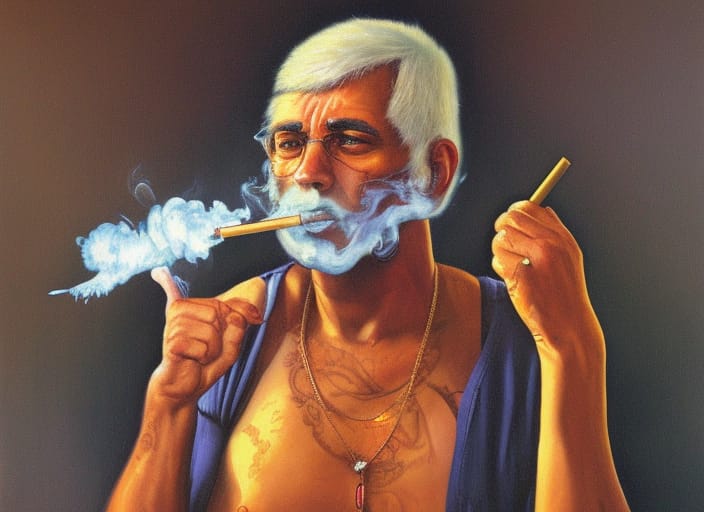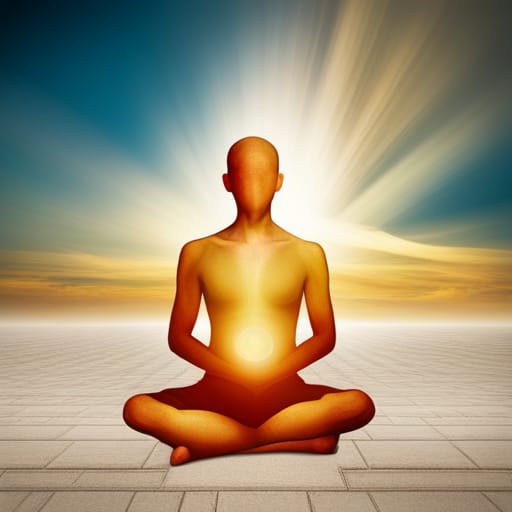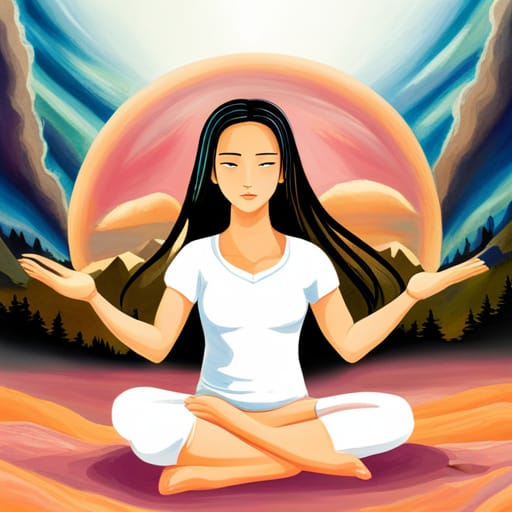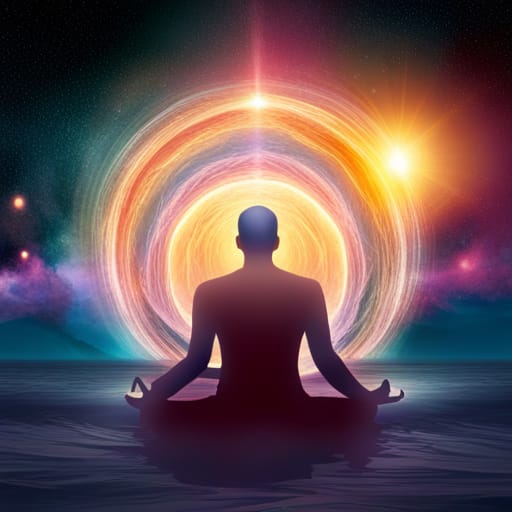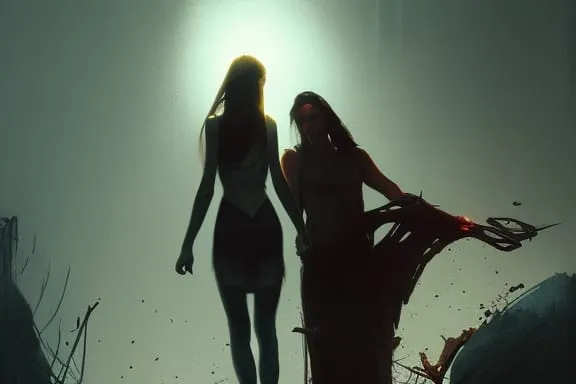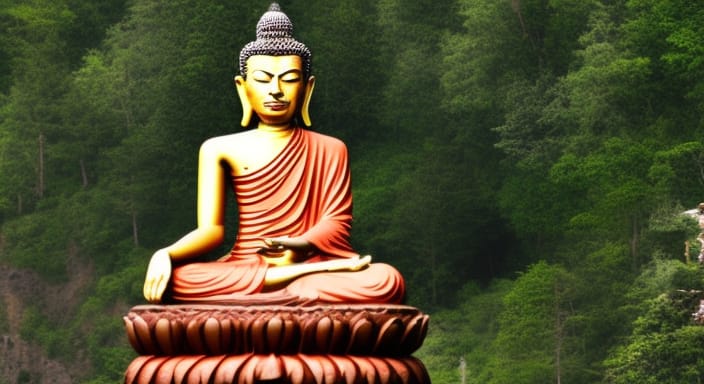
When we are suffering, usually the first thing we are programmed to do as an ego is to curl up and figure out how we can be ok, and how we can look after number one. This is a very deep conditioning, which at a genetic level, precedes every other primitive psychological drive. Self-preservation underpins all of our genetic responsibilities. How this plays out on an experiential level is fear. Fear of annihilation, fear of suffering, fear of not making it. This is the deepest conditioning of the genome, conceivably going back all the way to the origin of our DNA. What if our deeply-rooted assumptions are totally upside-down, from a spiritual perspective? There are many reasons for thinking this to, in fact, be so.
The Buddhist tradition embraces a concept of compassionate service. Imagine a universe written as code. From the bottom up, you have been programmed to act in one direction, so that everything in any other direction would serve only to compromise your genetic existence. What kind of education would that be? An exceptionally challenging one, in my experience. Everything would have to be reviewed, from the very foundations up.
How it is that we are genetically programmed to insulate our suffering by withdrawing into ourselves? Picture a hedgehog rolling up into a ball when it senses danger, and you will have a workable mental image of how our genetic conditioning has encouraged us to respond. This may be perfectly fine insofar as hedgehogs are concerned, but what about us?
Why do spiritual traditions such as Buddhism subvert what we might call genetic values? Why would any spiritual tradition teach us anything even remotely different from that hedgehog’s response of curling up into a ball when in danger? Is it some kind of strange coincidence that the teachings of those who came to bear such massive spiritual influence are at loggerheads with the moral principles encoded into our genome through natural selection?
Here are some of the common threads of these spiritual teachings: unconditional compassion and love for others, including all animals – compassion given even when no material or genetic return could possibly accrue. Unconditional forgiveness, acceptance and understanding: even though people may be our physical adversaries, ideological enemies, or simply those that intend to visit harm upon us.
Why does the moral calculus of material considerations, including genetic fitness and resource-hoarding, function to close the spiritual heart, causing us to contract into an existential foetal position, while spiritual practices of compassion open the heart? How could becoming more vulnerable be any kind of answer to the threat of pain and suffering? Why should these worlds be at such great odds, the material or biological world, and the spiritual world? What can these ancient traditions, mere thousands of years old, tell us that could be more materially valuable than genetic systems that may have been operating for billions of years from the first cells through to primitive burrow-dwelling mammals, and now us?
Are our spiritual insights an aberration, a kind of warped illusion of freedom from the forces of nature? Or could it be the material world is where falsehood always lay? Do these two facets work side by side as educational tools? These are weighty philosophical questions. I want to put these aside in favour of the here and now, and look at what immediate human involvements are relevant to the discoveries of traditional teachings such as Buddhism.
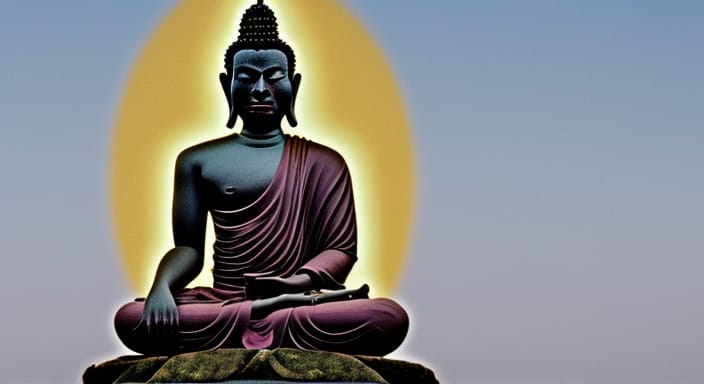
Whereas many traditional religious systems emphasise moral purity and categorical rejection of evil, Buddhism focuses upon wholeness, skilful living, compassion and wisdom. Seeing the bigger picture in a philosophical or theological sense is nowhere near as important in Buddhism as what we choose to do here and now. Buddhism teaches that our intentions, from our merest thoughts to our most fleeting actions in the world matter supremely. We are either making these decisions skilfully, from a space of what Buddhism calls ‘right view’, or we are perpetuating delusion that was born of the push-and-pull conflicts of the material world, the ‘maya’, which Buddhism views as rooted in illusion.
This Maya, this ingrained system of delusion, incidentally, is a precise reflection of the genetic morality, the unspoken code which promotes striving for power, resources, knowledge, experiences, reproductive leverage over others, warring with others, and outcompeting other groups. This Buddhism identifies this activity as an illusion rooted in fear, the origin of all psychic human suffering. Because all fear activity is based upon a premise of separation, being that you are distinctly separate from the world around you, it becomes a self-reinforcing hypothesis, as well as a self-fulfilling prophecy. This suffering is set to last at least as long as the power of the illusion holds sway over the mind.
How does this impact our life here and now? What are we to do with this insight, how are we to translate this insight when we are actually in the very midst of suffering? When we are in suffering, we are not experiencing the realm of the theoretical. None of our ideas, however advanced, lofty or comforting, may be applied. This is something I have seen from experience. As a long-time meditator, I have observed that when I am in a state of suffering or imbalance, the most pertinent lesson is not that I have failed to understand something intellectually, nor is it that I am being punished because I have done something wrong, but that there is an element of something present that is outside of my immediate control.
It just is. It is a brute, present fact. I have often learned the most in meditation when I have come face to face with what I do not have the power to move. Every meditator eventually meets this phenomenon. The reason we have an entire cultural history of saints, sages, gurus and mystics is testament to the presence and power of suffering. They demonstrate the hunger of humanity, the deep drive to transcend that which torments us at our human level. Without suffering, we would have none of these teachers, nor would a single one of their timeless lessons be relevant to us.
What I have discovered personally in my own lifetime is that following the directives of self-interest is often harmful in very immediate and direct ways. Self-centredness is a compassion-inhibitor. An attitude of selfishness has never produced anything for me other than misery, even when I managed to get exactly what I thought I wanted. Amazingly, the opposite has been true. When I looked after the well-being and interests of others, I never had to take thought for myself, and even when I didn’t get what I thought I wanted or needed, everything turned out just fine.
So why would it be the case that what should, at least on paper, get us more of what we want lead to even less well-being for us personally? Why doesn’t it feel wholesome, why doesn’t it feel like a good fit for our inner life? I have experienced many miseries that were the result of selfishness, but I cannot think of one single episode of caring and giving in which I experienced forlornness or regret. This may be symptomatic of the fact that in this state, others are visible to us and welcomed within our world, while we ourselves remain almost invisible actors, like God’s unseen hand. This may be why Nisargadatta said: “Wisdom tells me I am nothing; Love tells me I am everything – and between the two, my life flows.”
In the same way that we all share in an eternal divine nature, we also share in a universal, human brokenness. There are not the pure among us who have somehow got it perfectly right and have escaped all suffering, and there are not the evil among us who have got it wrong and eternally bound themselves to suffering. We all meet somewhere on the spectrum as humans, because to incarnate into a biological form means to court some degree of suffering. What systems such as Buddhism offer is medicine for this suffering.
Let’s go back to my original example of the way a hedgehog reacts to a dangerous situation. While this might be totally normal and practical for a hedgehog, it isn’t normal and practical for a human mind. Natural selection may even have developed minds to react this way, but natural selection has no stake in your mental and spiritual well-being. The only variable being considered is differential genetic success. Evolution applies these pressures to other people and groups as well, and it couldn’t care less which survives. Like a mother squid with thousands of offspring, it has no favourites. There is not a shred of evidence that your genetic success, or lack thereof, has anything to do with your soul – which is to say, your psyche, or your True Self.
We will come across suffering in this life, we will meet with challenge – this much is certain. What I have discovered, as a very slow learner who has historically been very prone to over-intellectualise, is that compassion is the single most vital emergency medicine of the soul. Buddhism cultivates practises of loving compassion for this very reason, for ourselves, even for our enemies. Why? Because it actually works. If you want to see how, try it out for yourself.
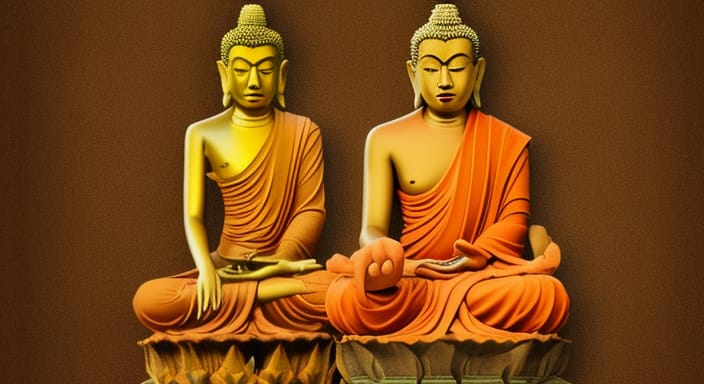
Moving from the hedgehog to ourselves, when we suffer, the worst thing I have discovered we could ever do is to close down. We revert to an almost reptilian state of self-obsession in which we are in a kind of genetic first-aid mode. We do anything we can to make sure number one is taken care of – ourselves. We obsess over how every tiny thing that could help us matters, or any way in which we could feel even slightly better. This is not only a magnification of suffering, this is the closest to hell I have been, experientially.
As I mentioned before, selfishness is a compassion-inhibitor. Armouring ourselves is the same movement as shutting down our connection to others. Buddhism shows us how this orientation of shutting down in self-protection and self-armouring actually harms us spiritually. Nothing will make you more miserable than focusing on yourself when you are deeply suffering, distressed or upset. All spiritual teachings have acknowledged this in some form. What is also understood is that this presents a double-bind – how can I look after myself and making sure I am going to be ok when self-consciousness is the one thing that will worsen my condition?
Again, the answer is the practice of compassion. Have you ever wondered why prominent Buddhists such as Thich Nhat Hahn or the Dalai Lama go to such extraordinary lengths to ensure the comfort, happiness and well-being of others instead of focusing on themselves? Recall that these are both men who have lived through the devastating effects of loss, war, political adversity and being driven far from their homes. Why do they choose outgoing compassion, ceaselessly?
They understand. They have suffered enough to understand and witness the truth of the Buddha’s teachings. We cannot merely look after ourselves – there is service to others in a field of compassion that includes us. This is the very medicine by which Buddhism offers the means to transcend the dreaded double-bind of self-consciousness, and thereby, the knot of suffering.
Another way to say this is: try to focus on the well-being of others, then see what happens. Your own situation will change quite without effort on your part. Remember, Buddhism prescribes medicine, not miracles – though these have certainly been known to happen from time to time. We all have the means to direct compassion outward. We do this by opening our heart to whether others are really ok. This could be as simple as giving our full attention to someone who is expressing themselves, or brushing the fur of a pet.
There is infinite creative potential available in how we attend to others compassionately, even if it is only in thought. If you want to know whether it really works, I can tell you from experience that it does. I can also point to the testimony of many others, including Tibetans held captive as political prisoners who ceaselessly share love and compassion with their prisoners and torturers. They testify that this practice has served as the one thing that has kept them from being sucked into a vortex of despair.
The same conditions may be present to us as traumatic personal history, mental illness, grief or loss. Making sure that others are alright should not be seen primarily as a moral prescription put forward by Buddhism so much as it is an invitation to wisdom, an entry point to experiencing the relief of suffering in our ordinary, daily lives, right here and now. This compassion then becomes a living example for others, showing them how their helping others also relieves their own suffering. Where else could we apply such wisdom but here and now?
*
Simon P Murphy is a Nelson-based esotericist and philosopher, and author of His Master’s Wretched Organ, a brilliant collection of weird fiction stories.
*
If you enjoyed reading this essay/article, you can get a compilation of the Best VJMP Essays and Articles from 2021 from Amazon as a Kindle ebook or paperback. Compilations of the Best VJMP Essays and Articles of 2020, the Best VJMP Essays and Articles of 2019, the Best VJMP Essays and Articles of 2018 and the Best VJMP Essays and Articles of 2017 are also available.
*
If you would like to support our work in other ways, subscribe to our SubscribeStar fund, or make a donation to our Paypal! Even better, buy any one of our books!

